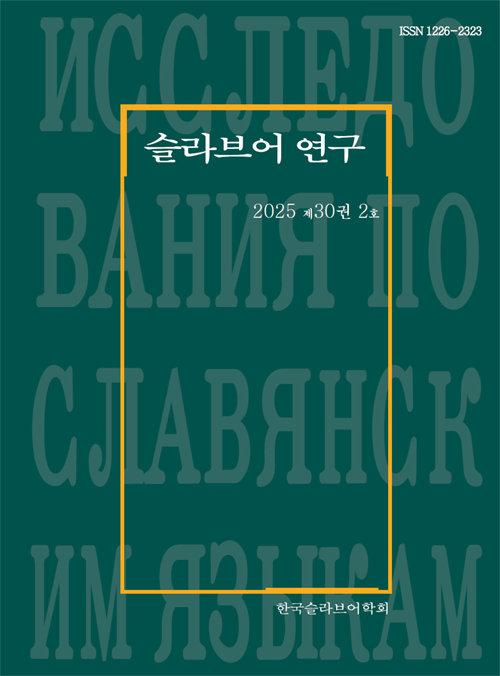- 영문명
- The Role of Slang in Teaching Slovak as a Foreign Language
- 발행기관
- 한국슬라브어학회
- 저자명
- Mgr. Zuzana Šmatláková
- 간행물 정보
- 『슬라브어 연구』제30권 제2호, 223~240쪽, 전체 18쪽
- 주제분류
- 인문학 > 기타인문학
- 파일형태
- 발행일자
- 2025.10.31

국문 초록
This study explores the didactic value of slang in teaching Slovak as a foreign language (SFL), arguing that so-called “peripheral” varieties can productively complement the standard norm within a sociolinguistic and pragmatic pedagogy. Moving beyond structure-driven instruction, it views communicative competence as encompassing not only grammatical accuracy but also register awareness, situational appropriateness, and culturally anchored identity work.
After positioning slang among other non-standard varieties, the paper synthesizes its key features—dynamism, expressivity, fashionability, group-boundedness, and contextual dependence—and addresses recurring critiques of “fashion words.” Drawing on Slovak scholarship (notably Dolník and Pekarovičová), it reframes linguistic fashion as a cyclical, socially motivated mechanism rather than a threat to language integrity.
Methodologically, the study combines (1) a sociolinguistic view of slang as a marker of belonging, especially among youth, and (2) a system-oriented view highlighting its interaction with lexicon, morphology, and stylistics. Based on this dual lens, it proposes context-rich classroom practices for advanced learners (B1/B2+) and motivating entry points at beginner levels (A1–A2). Three pedagogic routes are outlined: incremental work with fixed phrases; awareness-raising around productive nominal suffixes (-ko, -čka, -áč); and guided verb formation with productive Slovak suffixes (-ovať/-iť, -núť), including adapted digital verbs (e.g., like, scroll, share).
Each activity is framed by explicit pragmatics and paired with standard equivalents to prevent register drift. Integrating slang as a commented supplement—not a substitute—broadens learners’ repertoires, supports intercultural competence, and enhances social integration, particularly in youth and campus contexts.
영문 초록
목차
1. Úvod
2. Sociálno-komunikačný prístup k výučbe jazyka
3. Základné definície
4. Slang mladých
5. Slang vo výučbe slovenčiny ako cudzieho jazyka
6. Praktické odporúčania pri výučbe
7. Záver
L i t e r a t ú r a
키워드
외국어로서의 슬로바키아어(SFL)
속어
사회언어학
의사소통 능력
언어 사용 역식(register) 인식
언어 교육학
형태론적 생산성
청년 언어
정체성 형성
화용론
어휘적 혁신
디지털 담화
Slovak as a Foreign Language (SFL)
slang
sociolinguistics
communicative competence
register awareness
language pedagogy
morphological productivity
youth language
identity construction
pragmatics
lexical innovation
digital discourse
해당간행물 수록 논문
참고문헌
- Studia Academica Slovaca
- Studia Academica Slovaca
- Metodické centrum Banská Bystrica
- VEDA, vydavateľstvo Slovenskej akadémie vied
- Kalligram
- VEDA, vydavateľstvo Slovenskej akadémie vied
- Oxford University Press
- Hevi
- Slovenské pedagogické nakladateľstvo
- Univerzita Komenského v Bratislave
- Studia Academica Slovaca
- Matica slovenská
- Univerzita Komenského v Bratislave
- Univerzita Komenského v Bratislave
- Kultúra spisovnej slovenčiny
최근 이용한 논문
교보eBook 첫 방문을 환영 합니다!

신규가입 혜택 지급이 완료 되었습니다.
바로 사용 가능한 교보e캐시 1,000원 (유효기간 7일)
지금 바로 교보eBook의 다양한 콘텐츠를 이용해 보세요!



